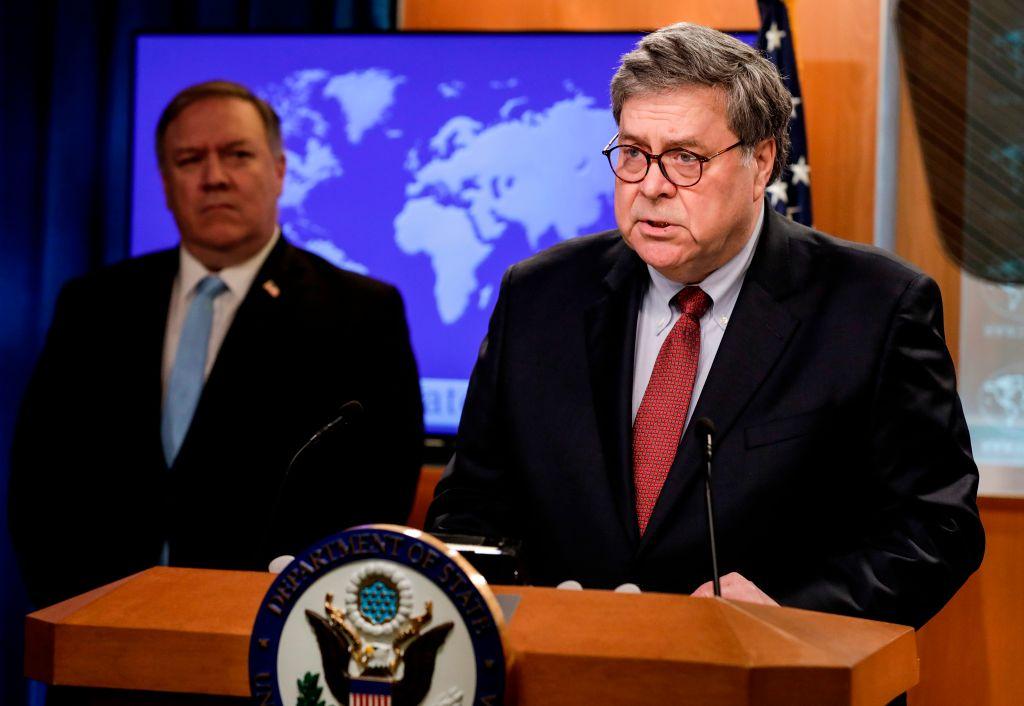Trump administration attack on International Criminal Court dangerous and counterproductive
Posted By Emilia Currey on July 22, 2020 @ 06:00

In March 2020, the International Criminal Court authorised [1] the independent Office of the Prosecutor to investigate allegations that war crimes were committed by some of those fighting in Afghanistan since May 2003.
The ICC was established in 2002 by the Rome Statute [2], with the goal of ending impunity for perpetrators of the most severe atrocities under international law: genocide [3], crimes against humanity [4], war crimes [5] and crimes of aggression [6]. This is an enormous task, but it’s key to facilitating lasting peace and equality in a post-conflict society and in the broader international order.
The ICC has had a rocky history, with arguably as many setbacks as successes. The latest challenge is the signing of an executive order [7] on 11 June by US President Donald Trump authorising sanctions against employees of the ICC in retaliation for its investigation into alleged war crimes committed in Afghanistan by US military and intelligence personnel.
The US government can now freeze the assets of and ban travel by ICC staff and their families, or anyone else it believes has supported the court’s investigation. In announcing [8] these sanctions, US Secretary of State Mike Pompeo described the ICC as corrupt and labelled it a ‘kangaroo court’ that has no jurisdiction over US personnel.
Pompeo’s claim that the ICC’s jurisdiction doesn’t extend to the actions of US personnel in Afghanistan is incorrect. While it is true the US has never been a signatory to the Rome Statute, Afghanistan deposited its instrument of accession in February 2003 [9]. Under paragraph 12(2)(a) of the statute, the ICC has jurisdiction over atrocities committed in state parties, which means it can investigate alleged war crimes in Afghanistan, whether the US recognises its jurisdiction or not.
The Trump administration’s authorisation of sanctions, as well as its claims of corruption within the ICC, constitute a political attack on the court. The US says that the aim of the sanctions is to ensure it retains the right to put its own soldiers on trial; however, the absence of any reliance on the principle of complementarity, which would achieve just that, stands out.
This principle, enshrined in Article 17 of the statute, gives primacy to domestic prosecutions. A case is admissible before the ICC only if a state proves ‘unwilling or unable’ to genuinely investigate and prosecute the alleged offences committed by its citizens. US Secretary of Defence Mark Esper spoke of the ‘proven record’ [8] of the US in ‘investigating and prosecuting alleged abuse of detainees’ and other forms of misconduct.
One explanation for the administration’s lack of reliance on the principle of complementarity may be that the US’s ‘proven record’ of investigations is not as extensive as it claims. Human Rights Watch found [10] that while some investigations were conducted into alleged abuses by US personnel in Afghanistan, they were severely limited in scope. Only 101 cases were investigated, and no charges were brought. Human Rights Watch found no evidence that victims were interviewed. And the investigations focused on alleged abuses that went beyond authorised interrogation methods, ignoring the fact that much of what was authorised also constituted torture under both international and US law [11].
So, rather than risk the principle of complementarity not holding up in the US’s favour, the Trump administration has launched a political offensive against the ICC.
In response, the ICC issued a statement [12] condemning the US’s actions as an ‘unprecedented’ attack on the court and interference with the rule of law. The Trump administration’s stance is highly problematic, but it is unfortunately not unique.
The ICC has long faced political retaliation for the investigations conducted by the Office of the Prosecutor, including Russia’s withdrawal of its [13] signature from the Rome Statute in 2016, the near mass withdrawal of African states [14] in 2017, and the threatened arrest of the ICC prosecutor by President Rodrigo Duterte of the Philippines [15] in 2018. Of great concern is that, until now, these were primarily the actions of autocratic leaders, driven by self-interest, to avoid the scrutiny of an independent judicial process. The US, which has long been the champion of the international liberal democratic order, is exhibiting increasingly illiberal and autocratic characteristics.
On 11 June, Pompeo warned the allies that fought alongside the US in Afghanistan, ‘Your people could be next.’ For Australia, this is an unlikely prospect, given that, as long ago as May 2016, the defence force launched an investigation [16] into allegations and rumours that special forces troops had killed unarmed Afghan men and children.
That investigation, led by former New South Wales Supreme Court Justice Paul Brereton, is expected to be concluded soon. After interviewing many Australian special forces veterans, Brereton, and Australian Federal Police officers, travelled to Afghanistan last year to interview witnesses there. Now, Australia’s Commonwealth Director of Public Prosecutions is preparin [17]g to prosecute war crimes.
Key US allies, including Australia, the UK and Canada (alongside 64 other states), have signed a joint statement [18] that’s a clear declaration of support for the ICC. The signatories called on all states to cooperate with the court on the fight against impunity and reaffirmed their commitment to an international rules-based order from which everyone benefits, irrespective of what side they were on in a conflict.
Article printed from The Strategist: https://aspistrategist.ru
URL to article: /trump-administration-attack-on-international-criminal-court-dangerous-and-counterproductive/
URLs in this post:
[1] authorised: https://www.icc-cpi.int/Pages/item.aspx?name=pr1516
[2] Rome Statute: https://www.icc-cpi.int/resource-library/documents/rs-eng.pdf
[3] genocide: https://www.icc-cpi.int/resourcelibrary/official-journal/rome-statute.aspx#article6
[4] crimes against humanity: https://www.icc-cpi.int/resourcelibrary/official-journal/rome-statute.aspx#article7
[5] war crimes: https://www.icc-cpi.int/resourcelibrary/official-journal/rome-statute.aspx#article8
[6] crimes of aggression: https://www.icc-cpi.int/resourcelibrary/official-journal/rome-statute.aspx#article8-bis
[7] executive order: https://www.whitehouse.gov/presidential-actions/executive-order-blocking-property-certain-persons-associated-international-criminal-court/
[8] announcing: https://www.state.gov/secretary-michael-r-pompeo-at-a-press-availability-with-secretary-of-defense-mark-esper-attorney-general-william-barr-and-national-security-advisor-robert-obrien/
[9] in February 2003: https://asp.icc-cpi.int/en_menus/asp/states%20parties/asian%20states/Pages/afghanistan.aspx
[10] Human Rights Watch found: https://www.hrw.org/news/2020/03/23/qa-international-criminal-court-and-united-states#6
[11] international and US law: https://www.hrw.org/report/2015/12/01/no-more-excuses/roadmap-justice-cia-torture
[12] statement: https://www.icc-cpi.int/Pages/item.aspx?name=200611-icc-statement
[13] withdrawal of its: https://foreignpolicy.com/2016/11/16/why-russia-just-withdrew-from-icc-putin-treaty-ukraine-law/
[14] African states: https://www.ispionline.it/it/pubblicazione/kenya-and-sudan-two-cases-shaped-africas-criticism-towards-icc-16454
[15] President Rodrigo Duterte of the Philippines: https://www.theguardian.com/world/2018/apr/13/philippines-duterte-threatens-to-arrest-international-criminal-court-prosecutor
[16] investigation: https://www.abc.net.au/news/2020-02-25/secret-defence-investigation-focusing-on-unlawful-killings-in-a/11999314
[17] preparin: https://www.abc.net.au/news/2020-05-18/prosecutor-appointed-allegations-soldier-misconduct-afghanistan/12260388
[18] joint statement: https://www.international.gc.ca/world-monde/international_relations-relations_internationales/icc-cpi/2020-06-23_icc-cpi.aspx?lang=eng
Click here to print.